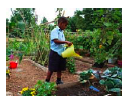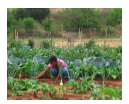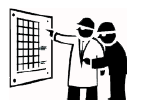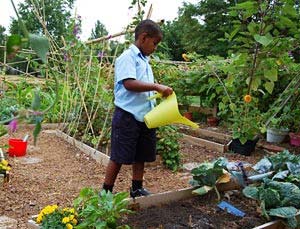What do Plants Need to Grow?
Plants require specific nutrients for growth and reproduction. They must also have light, water, and air to make food for themselves. Read more...
Soil is a "grocery store" for plants. As plant roots grow in the soil, they absorb nutrients and water that are required by the plants. Soils and water vary, thus, they differ in the types and amounts of nutrients that are available to plants.
A "perfect" soil contains all of the nutrients a plant needs and has the appropriate texture (particle configuration). Most soils must be amended in some way to improve their quality. A fertilizer is any substance that is added to the soil or water to increase the amount of nutrients available to plants. Fertilizers can be man-made or natural substances. Manure, fish emulsion, composted plant materials, and store-bought man-made fertilizers are all considered to be "fertilizers". Overuse of a fertilizer of any type is not only harmful to the plants, but it contaminates water (groundwater, streams and oceans).
Soils in a region reflect their local geology and determine in part what kinds of plants can grow in a region. Organisms can tolerate some variation in the things they need in order to survive, but they do best under certain conditions. Natural limitations may be overcome, such as poor soil or long periods without rain, by composting and watering. Nevertheless, it is important to choose plants that are adapted to local ecological conditions and thus start with plants that are known to grow well in the region.









